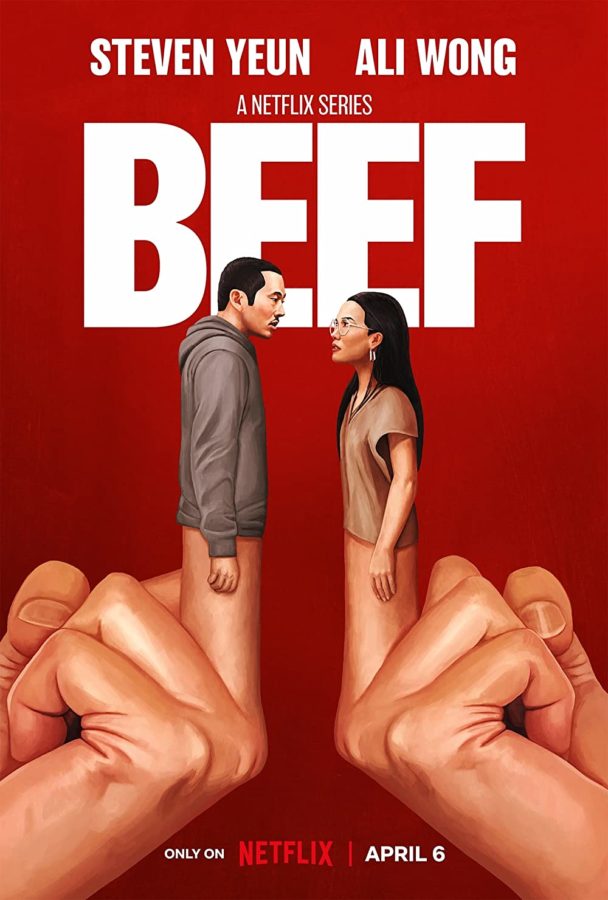May 1 marked the start of Asian Pacific American Heritage Month. AAPI Heritage Month is an annual celebration recognizing the historical and cultural contributions of individuals and groups of Asian and Pacific Islander descent to the United States. What better way to recognize those contributions than through entertainment?
Recent data shows that broadcast and cable networks should take after the example set by streaming networks such as Netflix, which has produced many AAPI centered properties such as “Never Have I Ever” and “Always Be My Maybe”. The 2023 Asian American, Native Hawaiian and Pacific Islander Diverse Intelligence Series report released by Nielsen found that “Compared to the general population, AANHPI audiences watch about 27% more streaming content.” After all, we all want to see versions of ourselves represented in the media, and streaming platforms address this need.
By now, you have probably watched or heard about the Netflix show “Beef,” starring Steven Yeun and Ali Wong, a story of a road rage incident that turns into Yeun and Wong, who play Danny Cho and Amy Lau respectively, attempting to sabotage each other’s lives. The show has taken Netflix’s audience by storm, and was No. 1 on Netflix’s Top 10 list of TV shows at one point as well as the most streamed show for the week of April 10th according to The Hollywood Reporter. Most viewers appreciate the show for its exceptional acting, riveting plot, and its ability to walk the line between drama, comedy and action. But “Beef” has layers to it, and its complexity and authenticity is one that has been missing in the representation of the Asian American community in media.
“Beef” encapsulates so much of what it means to be Asian American: food, church, complex family dynamics and the weight of parental expectations, and yes … basketball. Lee Sung Jin does a great job of casting Asian Americans in a different light than past films such as “Crazy Rich Asians”, which largely promoted the model minority myth. In “Beef”, a variety of characters were portrayed in the majority-Asian cast, of different personalities and socioeconomic status, disproving the idea that Asian Americans are one homogenous group of people. We see a little bit of everything: a struggling contractor in Danny Cho, who is making ends meet to provide for him and his younger brother, a successful business owner in Amy Lau, and Paul Cho (played by Young Mazino), Danny’s younger brother who spends most of his time gaming and dabbling in cryptocurrency.
Most importantly, “Beef” disregards several Asian stereotypes that have been repeatedly perpetuated in American films.
For one, Asian people are rarely ever given roles in mainstream TV shows, and if they are, they are often portrayed as subordinate characters who are placed in the show or movie for comedic purposes, never taken seriously and far too often the butt of a snarky joke. Take HBO’s “Silicon Valley” for example, a show that gives Jimmy O’Yang the role of an awkward, heavily-accented app developer who immigrated from China. There’s nothing inherently wrong with this, but when this is the only role given to an Asian person in the whole show, it affects America’s perception of Asians as a whole. In contrast to the role of O’Yang in “Silicon Valley”, “Beef” casts characters like Isaac Cho, an ex-prisoner who repeatedly wreaks havoc throughout the show with his rough and aggressive demeanor.
It was amazing to see how basketball was subtly incorporated in the various subplots of the show. For instance, Danny visits the Living Glory Church and instantly notices that the church has Friday Night Basketball when he is handed the welcome form. When talking to his younger brother Paul, Danny makes a comparison between Danny and Isaac’s relationship to that of two NBA players, when he says, “Like, I thought I was Webber, but I might be Stojakovic, right?”
As a Korean-American kid, I appreciated “Beef” for its impact on Asian representation in the media. While most American films sustain long-standing Asian stereotypes, “Beef” does the opposite, ignoring these stereotypes and driving a different narrative into the eyes of the American audience. It shows that Asian people don’t always have to shy away from conflict, or act as passive rule followers.
“Beef” is unapologetic, honest and authentic. It proves that a majority Asian cast can capture the attention of an audience without relying on a protagonist who possesses supernatural abilities or an expertise in martial arts. Nor does it need to be centered around a family of crazy rich Asians living in Singapore. Not that there’s anything wrong with these portrayals, but it’s time to broaden America’s perception of Asians. The Asian population is not a monolith, and we shouldn’t limit the way we are portrayed to martial arts and extravagant lifestyles. Sometimes, all it takes is a seemingly routine road rage incident to show that we’re not so different after all.









































